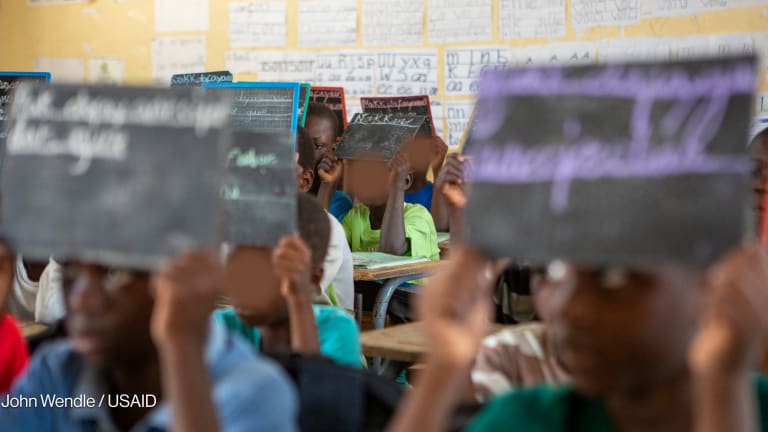Mali first to benefit from $100M fund for out of school children

LONDON — Out of school children living in Muslim-majority countries are set to benefit from a new $100 million funding partnership offering loans for education programs, with Mali the first country to receive the funds.
The partnership is designed to help marginalized children living in low-income countries get a primary education. Launched by the Islamic Development Bank and the Qatar-based Education Above All Foundation, the partnership was due to be announced at a side session during the United Nations General Assembly in New York on Friday.
Under the collaboration, certain IsDB client countries will be able to apply for concessionary loans for education projects as long as they are cofinanced by other players such as NGOs, government, or the private sector. The money will come from the Islamic Solidarity Fund for Development, IsDB’s philanthropic arm.
Mali is the first country to benefit and will receive $31 million in loans to part-finance a $144 million program aiming to get 600,000 out of school children into the classroom. Education Above All and other funders, including the Qatar Fund for Development, will provide the remaining $113 million. Nigeria and Pakistan are the next countries set to access the funding partnership.
International Finance Facility for Education musters growing support
Details emerged about the development of the fledgling IFFEd during the U.N. General Assembly.
Education advocates have warned that out of school children are being neglected by donors in favor of programs focused on improving learning outcomes for those already in school. Some 263 million children around the world, or 1 in every 5, are not in school, according to UNESCO’s latest estimates.
Fahad Al Sulaiti, CEO of Education Above All, which will be responsible for monitoring and evaluating the fund’s projects, told Devex the partnership was “unique” in combining development bank financing with other funding that can then go directly to education actors.
“Usually development banks only work with governments … so this is very unique .. [We] got the bank to change their process,” he said, adding that the sum pledged is a “huge amount” for the issue of out of school children. However, $100 million will not be enough to solve the problem and stakeholders must continue to work together, he added. EAA has been working on the issue of out of school children since 2012.
David Offensend, head of the Education Development Centre, the NGO leading the four-year Mali program, described the funding partnership as “very bold and innovative” and said it could drive progress on reaching out of school kids.
“The success we hope to have in reaching these hard to reach populations will not only have a huge impact in Mali but ... can inform strategies for reaching the same kinds of children in other countries,” he said.
Offensend praised IsFD and EAA for picking such a “complex” challenge. “It’s impressive that these funders are going after the most disadvantaged children, which we refer to as the high-hanging fruit because they are the hardest to reach,” he said, adding that “the consequences and costs of not providing basic education to these children are really frightening … They will multiply over time to become an intractable problem 25 years from now.”
The Mali program involves a consortium of 12 NGOs working with target groups including children from migrant and nomadic populations, children with disabilities, those living in conflict-affected areas, and those permanently excluded from government schools.
Activities will include training teachers, providing learning materials, and working with communities to engage parents as education champions. They will also offer mobile schools to seminomadic groups, using temporary classroom structures such as tents and folding tables.
The director-general of IsFD, Waleed Al Wohaib, said in a statement: “We can see that many of our member countries struggle to access finance on the global credit market … [and so we] are launching this dedicated fund … to finance educational initiatives.”
A spokesperson for Mali’s ministry of education said the financing opportunity was “sorely needed” to boost the country’s education system.
Search for articles
Most Read
- 1
- 2
- 3
- 4
- 5








